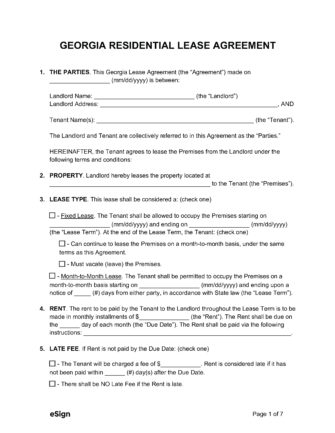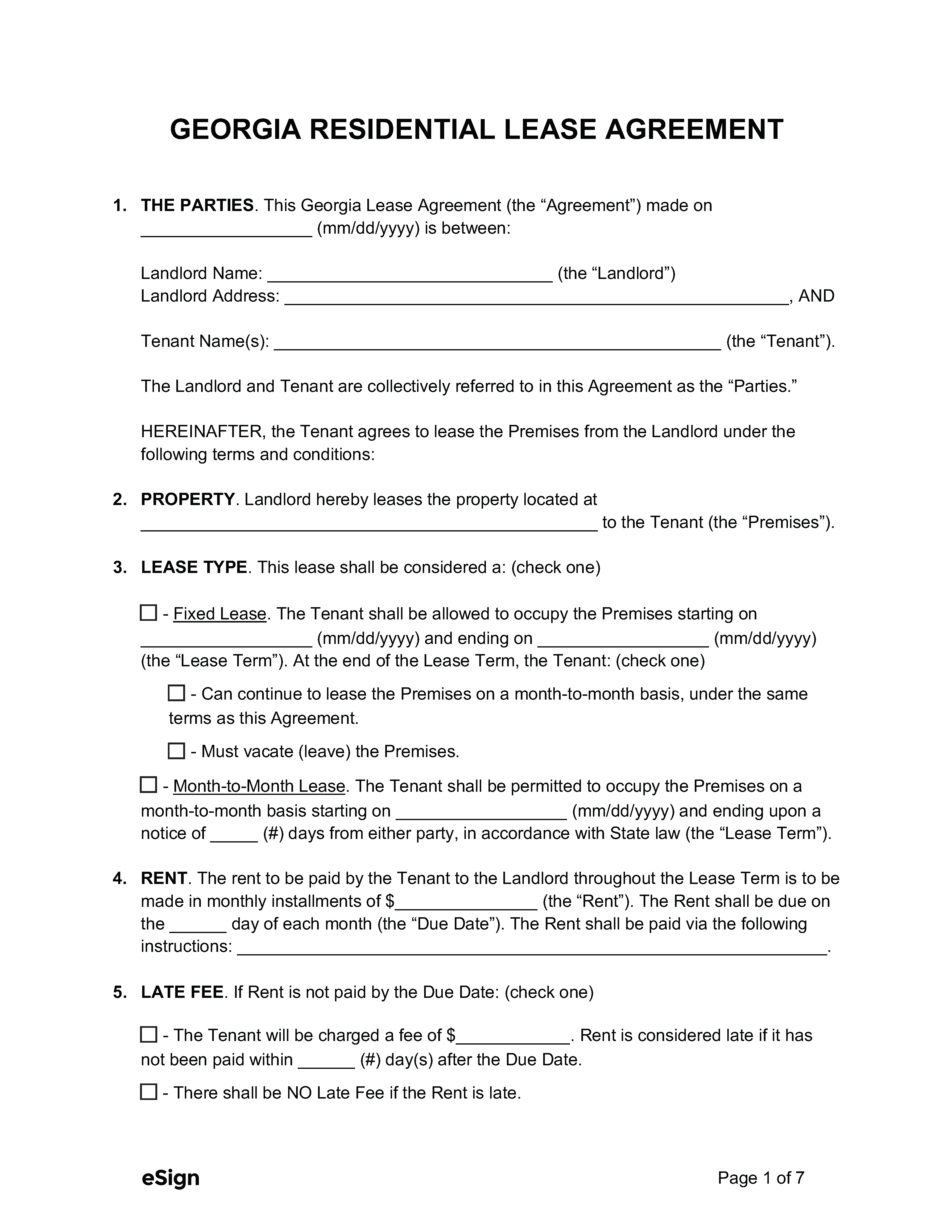
A Georgia lease agreement is a rental contract between a tenant and a landlord/owner of a residential or commercial property. The terms and conditions of each lease vary depending on the type of property and the needs of both parties. Generally, a rental agreement outlines the monthly rent, lease duration, maintenance duties, and the conditions of renting the property.
A Georgia lease agreement is a rental contract between a tenant and a landlord/owner of a residential or commercial property. The terms and conditions of each lease vary depending on the type of property and the needs of both parties. Generally, a rental agreement outlines the monthly rent, lease duration, maintenance duties, and the conditions of renting the property.
PDF Download
A Georgia lease agreement is a rental contract between a tenant and a landlord/owner of a residential or commercial property. The terms and conditions of each lease vary depending on the type of property and the needs of both parties. Generally, a rental agreement outlines the monthly rent, lease duration, maintenance duties, and the conditions of renting the property.
4.3 | 119 Ratings Downloads: 24,970
Rental Application – Landlords can use a rental application to gather personal, employment, and previous rental information from lease applicants before accepting them for tenancy.
Maximum Amount ($) – There is no legal limit to the security deposit amount that landlords can request from tenants.
Collecting Interest – Georgia law does not require landlords to pay interest on security deposits.
Returning to Tenant – Landlords must return security deposits to tenants within 30 days of the lease termination date. [6]
Itemized List Required? – Yes, i f the landlord deducts any amount from the tenant’s security deposit, an itemized list of damages and costs must be included when the deposit balance is refunded. [7]
Separate Bank Account? – Yes, the landlord must place security deposits in an escrow account and notify the tenant where the account is held. [8]
General Access – Georgia law does not define a required notice period for entering a rental unit. In most cases, giving written notice at least 24 hours in advance is considered reasonable.
Immediate Access – While there are no state laws that mention emergency access, landlords can typically enter immediately if they believe it’s an emergency. [9]
Grace Period – Tenants are not provided a grace period under Georgia law. Rent must be paid to the landlord on the due date specified in the lease.
Maximum Late Fee ($) – There is no statutory limit on late rent fees.
Bad Check (NSF) Fee – Landlords can charge tenants a maximum of $30 or 5% of the bounced check (whichever is greater) plus bank fees. [10]
Withholding Rent – If the landlord doesn’t repair an issue within a reasonable time after receiving notice, the tenant can hire a professional for the required repairs and subtract the expenses from the following rent payment. [11]
Non-Payment of Rent – An immediate notice to quit can be used to break a lease if the tenant fails to pay rent. [12]
Non-Compliance – There isn’t a required notice period for rental violations. Unless the lease says otherwise, the landlord can terminate the tenancy without notice immediately following a violation.
Lockouts – The only way to legally stop a tenant from accessing their rental unit is to go through the eviction process and obtain a court order. [13]
Leaving Before the End Date – There are no statutory penalties for vacating early. Unless otherwise agreed to in the lease, the landlord can keep the property vacant and require the tenant to pay rent until the lease expires. [14]
Month-to-Month Tenancy – Landlords must provide a lease termination letter at least 60 days in advance, while tenants are only required to give 30 days’ notice. [15]
Unclaimed Property – Outside of the eviction process, Georgia statutes don’t outline any requirements for handling unclaimed personal property. Landlords should refer to the lease when dealing with a former tenant’s belongings.